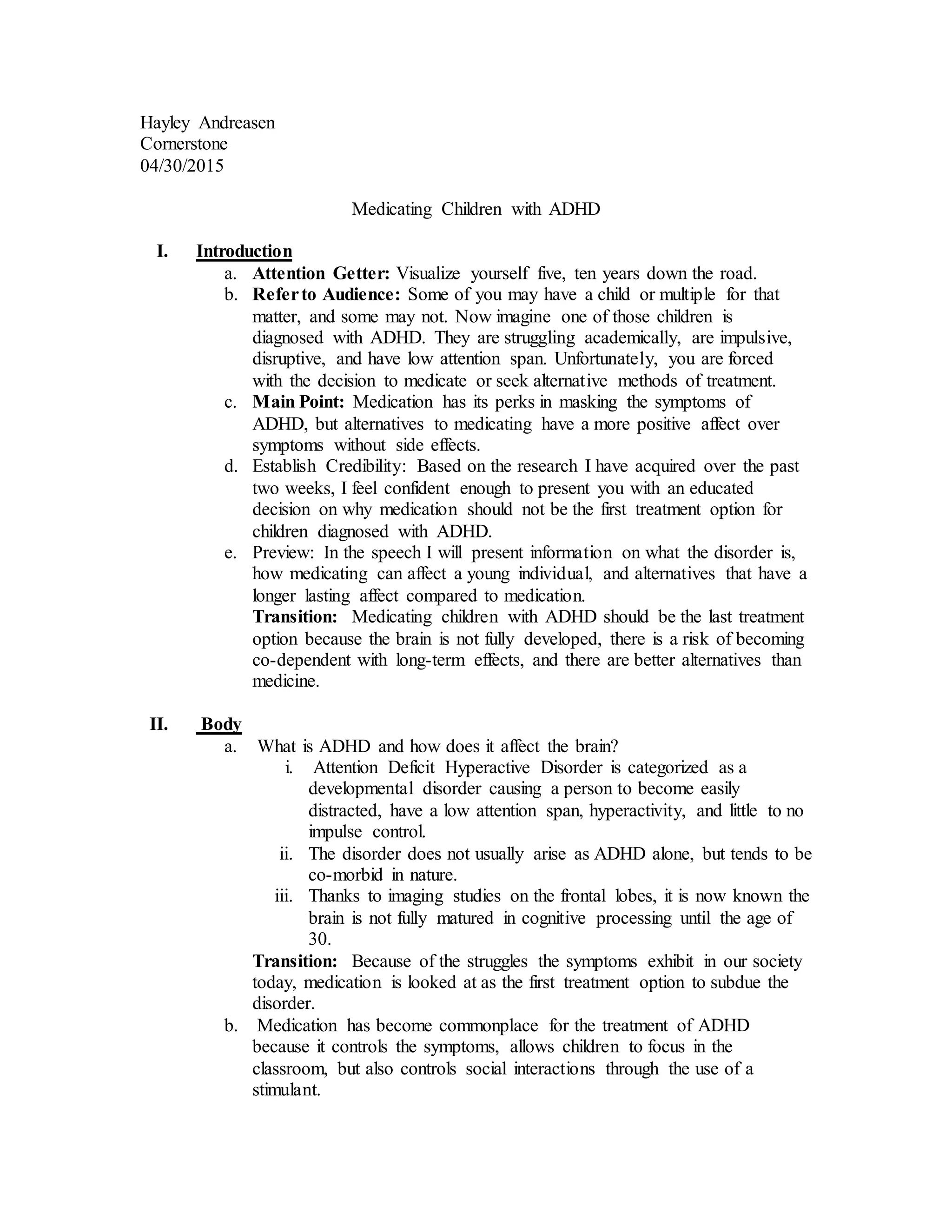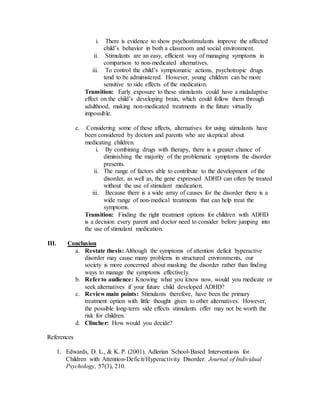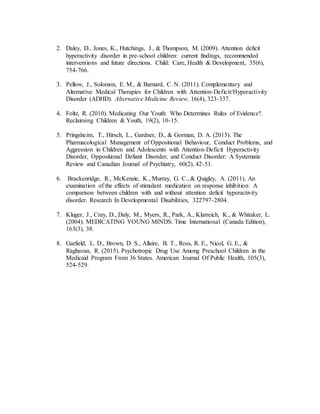1) The document discusses treatment options for children diagnosed with ADHD, specifically whether medication should be the first option.
2) While medication can help mask ADHD symptoms, it risks long-term side effects as the brain is still developing.
3) There are alternative treatments that combine therapy, lifestyle changes, and non-stimulant options that may be more effective without side effects.


